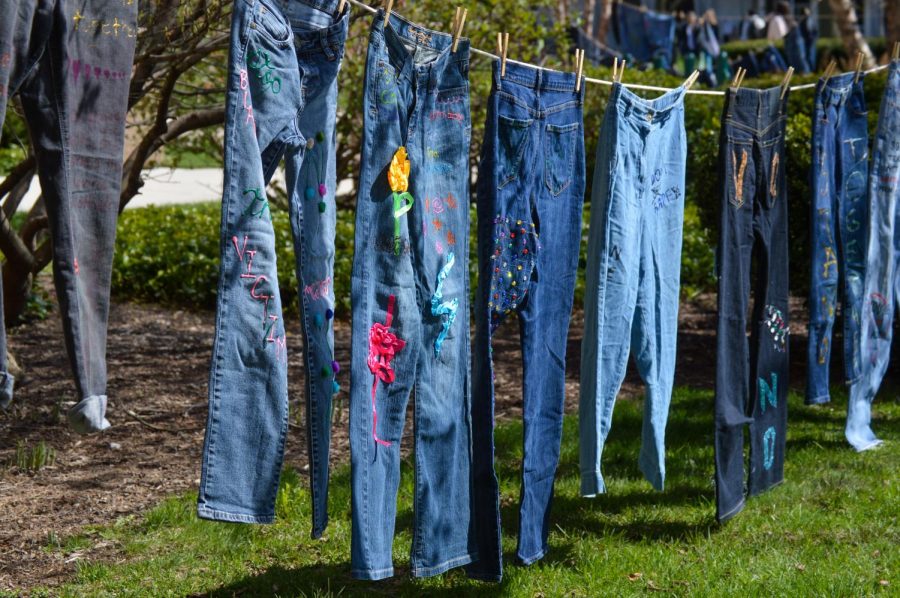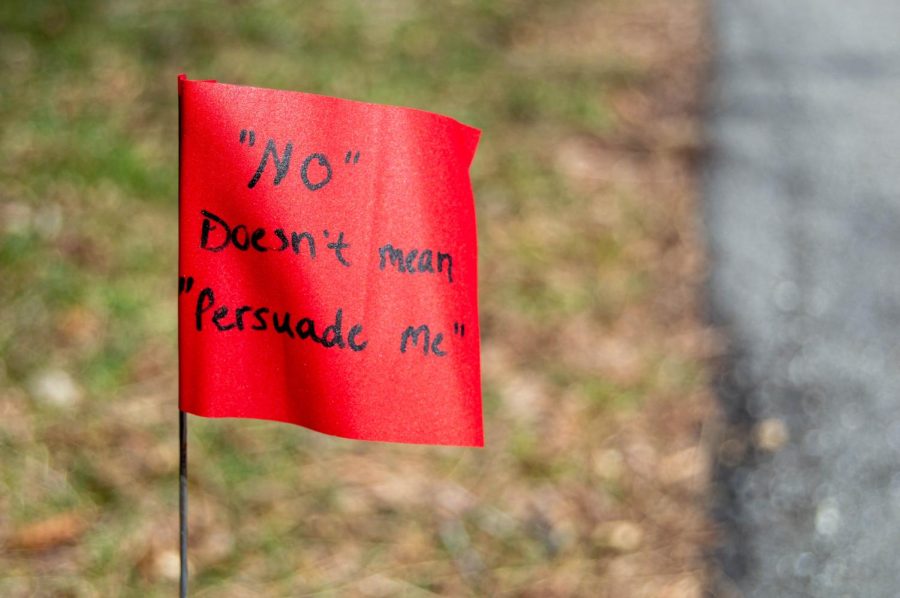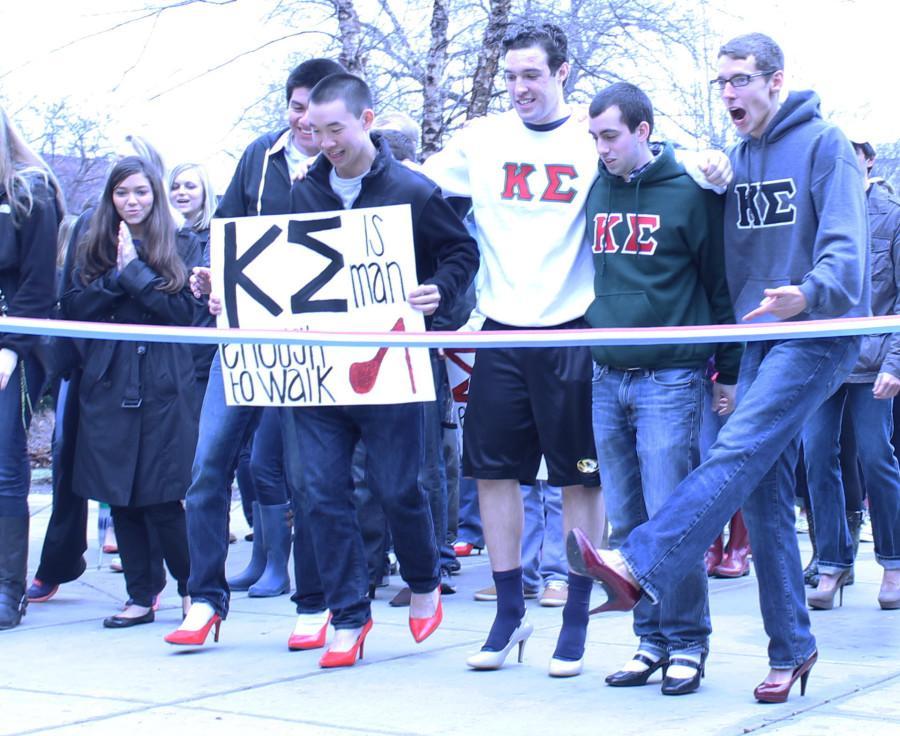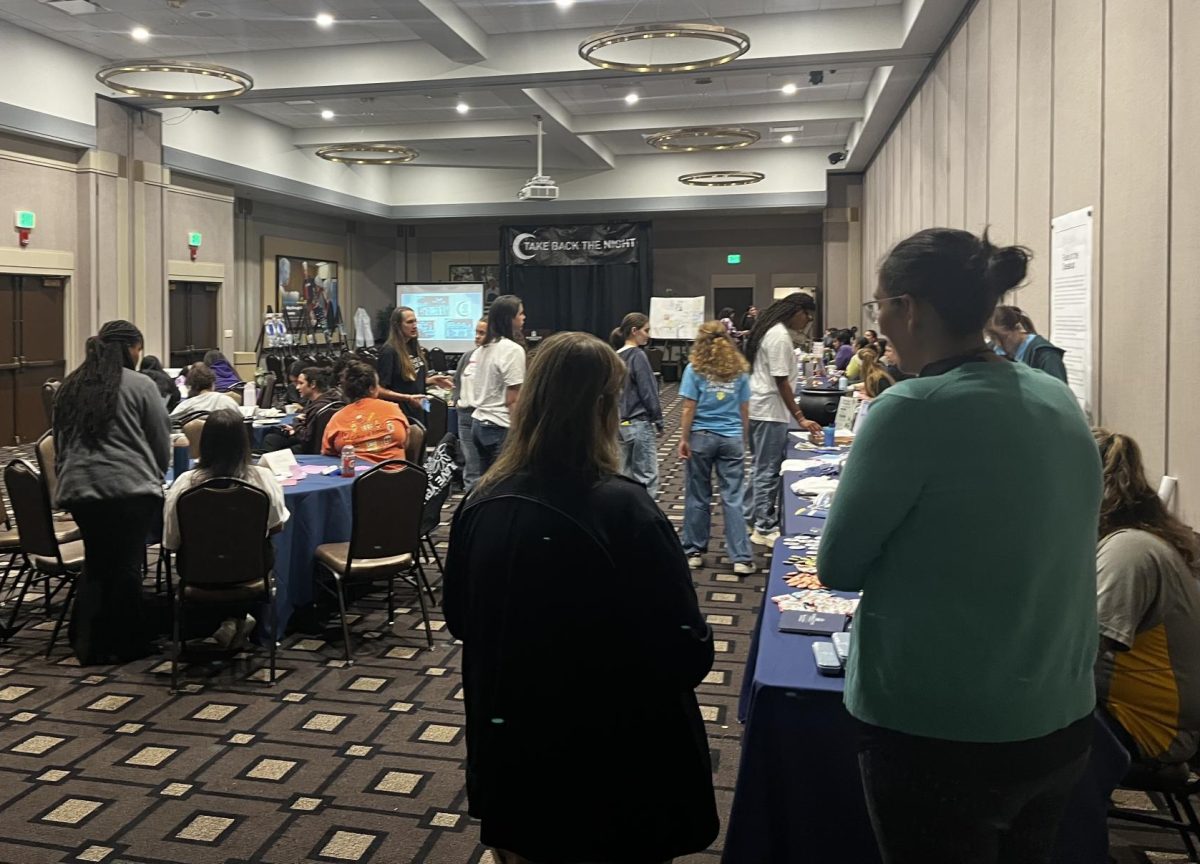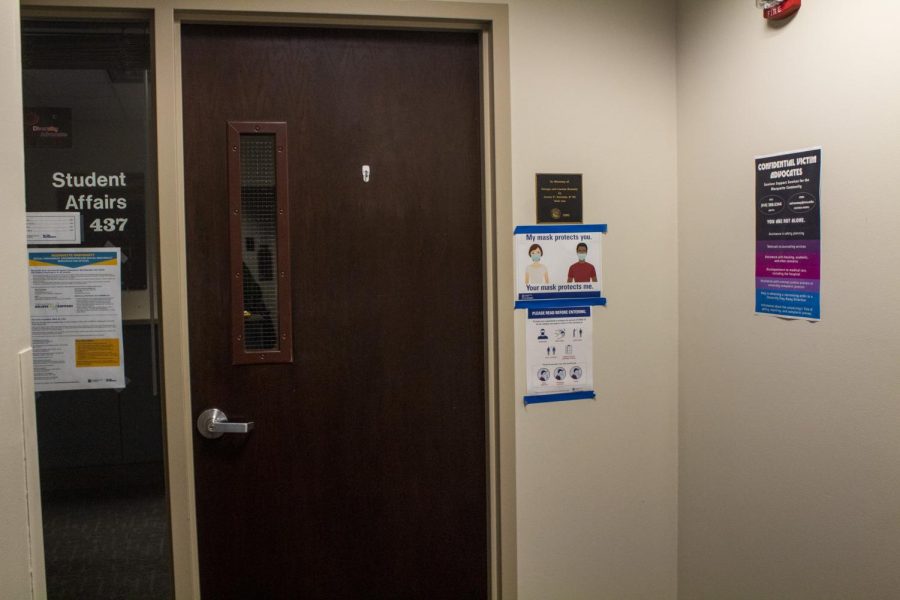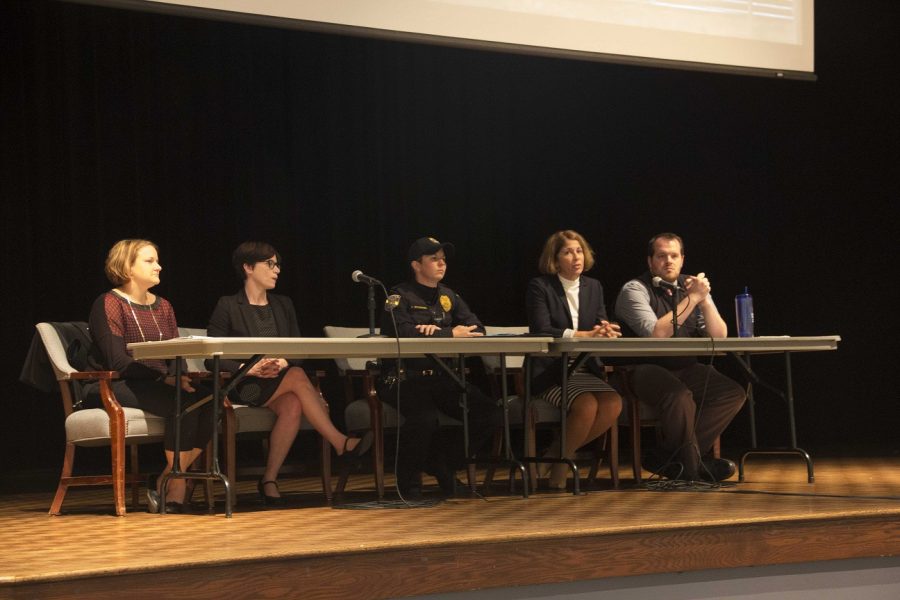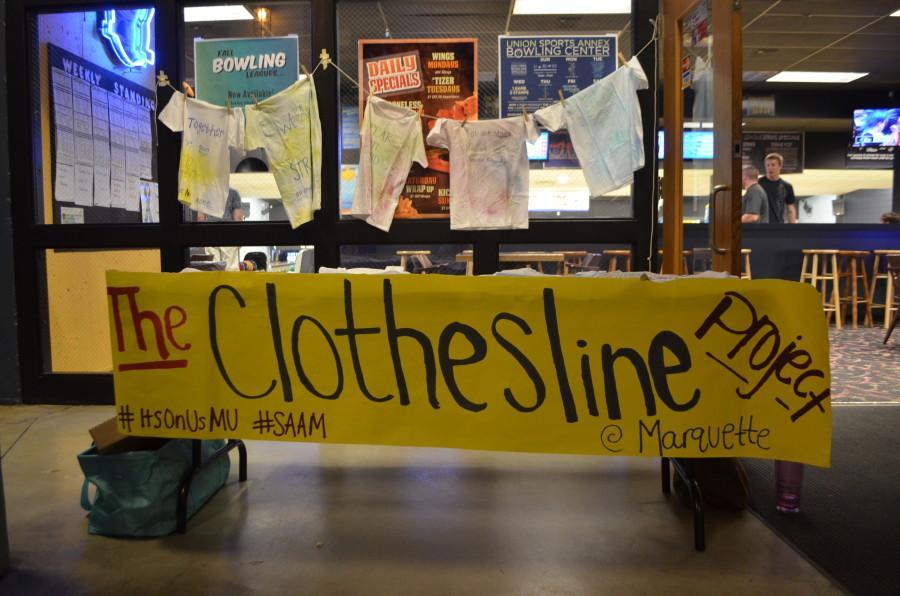One in four women will be victims of rape or attempted rape by the time they leave college, according to a 2010 study from the U.S. Department of Justice. The number may be startling, but it is an unfortunate reality for college-aged women, who are at a higher risk for sexual assault than any other age group.
April was named national Sexual Assault Awareness Month to raise awareness and help prevent all instances of sexual assault and harassment.
On April 24, the university will promote National Denim Day, which was created in 1999 after an Italian Court overturned a convicted rapist’s sentence on the argument that because the teenage victim’s jeans were tight, the victim must have helped remove them, therefore implying consent.
To honor the day, the university will sponsor a clothing drive for Pathfinders, an organization that provides clothing and food to homeless youth, and dispense free t-shirts and buttons in the AMU this afternoon. Clothing donations can be dropped off in the designated boxes in the residence halls, the Gender Sexuality Resource Center and the Student Health Center.
At Marquette, the number of sexual offenses appears to have grown over the last few years. According to the Department of Public Safety’s 2012 Security and Fire Report, there were two sexual offenses reported in 2009, three in 2010 and nine in 2011. Of these 14 reported sexual assaults, 10 occurred in the residence halls.
DPS Lieutenant Ruth Peterson said the statistics for the 2012 calendar year have not yet been released.
“While I don’t have comparison numbers, I do know that we have worked diligently over the past few years to proactively educate our entire campus community in addressing this important topic,” Peterson said in an email Wednesday. “Over the past two years, the university has trained more than 4,500 students on sexual violence awareness and prevention training.”
Susanne Cooper, coordinator of sexual violence services and a diversity advocate at Marquette, said Sexual Assault Awareness Month is important to help dispel the myths of sexual offenses. Such falsehoods, she said, are reinforced by media coverage of incidents such as the Stubenville, Ohio case, in which reporters from studios such as CNN displayed overt sympathy for the two teenage football players found guilty of raping their incapacitated peer.
Cooper said these myths include the idea that a “sexual assault is a hookup gone bad” or that the victims “deserve” the assault because of the way they were dressed or because they drank too much or were flirting. These ideas push the blame on the victims, Cooper said, who then are reluctant to come forward.
“Alcohol is used primarily as a tool for predators to incapacitate their victims,” Cooper said.
To prevent sexual assault, which is defined by Wisconsin Law as “any sexual contact without consent,” Cooper said it is important to ask for consent and not to take any implied action for granted.
“You need to ask,” Cooper said. “If you want to engage in any sexual activity with somebody, you need to ask. And you need to get a clearly communicated ‘yes’ from somebody.”




